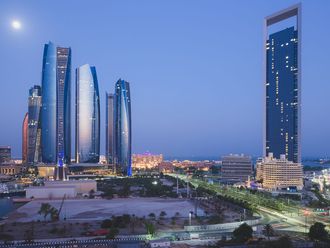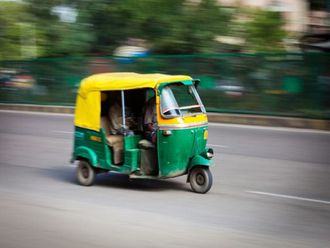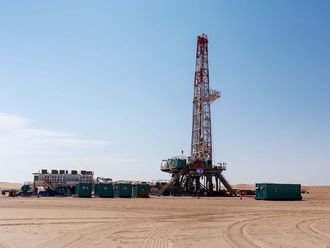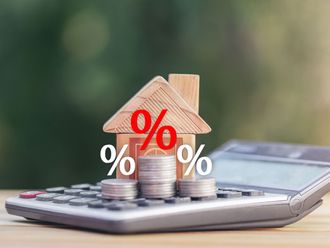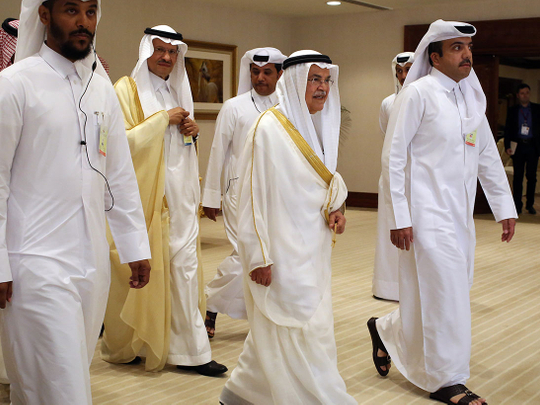
Dubai: A meeting of major oil producers in Doha on Sunday failed to reach an agreement on capping production, a move many producers hoped could be reached to support low oil prices.
Sixteen oil producing nations, including Saudi Arabia, Russia and the UAE, met in Doha in what was the first major meeting between Opec and non-Opec producing nations since 2001. However, talks ended on Sunday, hours after they begun, with de facto Opec leader Saudi Arabia reportedly at loggerheads with Iran, which has opted out of the talks.
Qatar's energy minister said no deal was reached on Sunday. Mohammad Bin Saleh Al Sada said oil producers concluded after six hours of negotiations that they needed "more time".
"The general conclusion was that we need more time to consult among ourselves in Opec and non-Opec producers," Sada said.
Negotiators failed to agree over whether the deal should extend to producers, such as Iran, who didn’t attend the Qatari oil summit, according to reports. Opec members now say they must reach an agreement with each other at a meeting in June before they can sit down again with other producers, Reuters reported, quoting industry sources.
Many analysts expected a non-result from the meeting with Opec’s December meeting failing to find a consensus among its members. But Sunday was just as much about saving face for the major oil producers, many of whom have seen their economies tumble as oil prices fell by as much as 70 per cent in the past two years.
Sunday’s meeting was organised after Saudi Arabia, Russia, Qatar and Venezuela met in Doha in February where they proposed producers cap production at January levels. Since then Brent crude has rebounded almost 30 per cent in the lead up the the Doha meeting. But the deal was always going to be dependent on whether others joined in, according to Saudi Arabia.
Iran had called the meeting a “joke” and said it would only discuss a cap after it reached its pre-sanction level production of 4 million barrels a day.
Last week, Iran’s oil minister Bijan Zanganeh said the country had added 600,000 barrels a day since November to export over 2 million barrels per day of oil and gas condensate in March. Opec member Libya was also not present at the meeting, neither were the United States who has emerged as the world's thirds largest oil producer in recent years.
Talks delayed for hours
The talks were delayed for several hours as the countries could not reach an agreement to freeze oil production. Saudi Arabia insisted that Iran join the deal and change the wording of the agreement to address its stance on the islamic republic.
Iran is trying to ramp up its production to 4 million barrels per day after sanctions were lifted on the country following an agreement with Western nations over its controversial nuclear enrichment programme.
In an interview to Bloomberg on Thursday, Saudi Deputy Crown Prince Mohammad Bin Salman said they would not agree to cap their output if other countries don’t join including Iran.
“If all major producers don’t freeze production, we will not freeze production,” said Prince Mohammad, 30, who has emerged as Saudi Arabia’s leading economic force. “If we don’t freeze, then we will sell at any opportunity we get.”
At Doha on Sunday, Wilson Pastor, Ecuador’s governor to Opec said before the start of the talks that the general agreement is in place.
“There is some disagreement on the wording and maybe this afternoon we are going to finish,” he said, adding that details on the monitoring of the accord and a follow-up meeting were also to be finalised.
Optimistic
Kuwait’s Acting Oil Minister Anas Al Saleh had said everybody was optimistic that a deal would “hopefully happen”.
According to Omani Oil Minister Mohammad Al Rumhy, Saudi Arabia and Russia have approved the proposal to freeze crude output at January levels until October 1.
He said the freeze agreement has no enforcement mechanism but expected everyone to stick to it in order to prop up oil prices.
Ecuador supported a reported draft agreement among major crude producers that would freeze output at January levels until October.
The country’s Hydrocarbons Minister Carlos Pareja told reporters on the sidelines of the meeting, “We are ready to take the first step and monitor the market to see if there is a reaction to that at the next Opec meeting and take more measures.
Industry experts speaking to Gulf News said cutting production is the only solution to increase oil prices.
Thangapandian Srinivasalu, Executive Director of Sharjah based Gulf Petrochem said there is more than one million barrels per day of excess oil in the market.
“Added to this is the Iranian production which is going to increase the coming months as the country tries to ramp up its production after sanctions were removed. All countries should slash output to stabilise oil prices,” he said.
A journalist covering the event tweeted “Opec Secretary General saying it’s too early, change your flight” indicating that talks might drag on.


